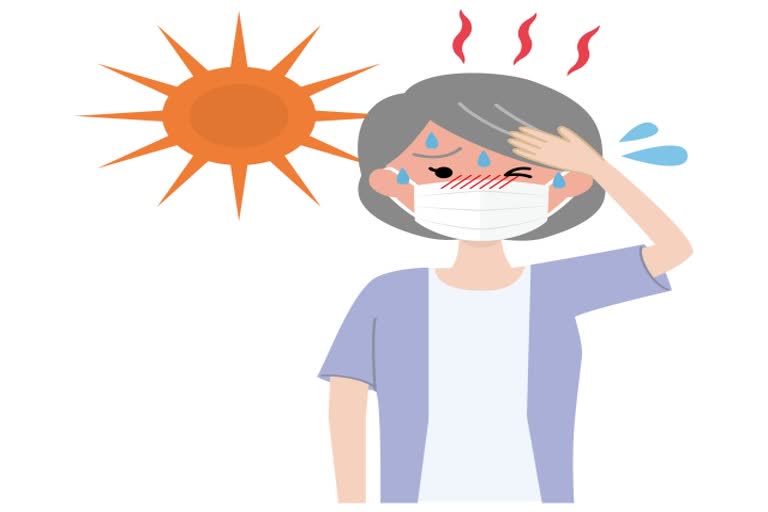Prolonged exposure to the scorching sun over the head and itchy heat during summers can quickly cause dehydration, excessive sweating and make the body unable to cool itself down. All these things can together lead to Heat Exhaustion and if it worsens, it can escalate to a Heat Stroke. Dr. Rajesh Vukkala, MD (General Medicine), Consultant Physician at VINN Hospital, Hyderabad, says, “Heat exhaustion is where the body’s physiological demands are still met by the body, without any compromise. But when the body is unable to meet its requirements, it escalates to heatstroke. This condition is more common in older adults, above the age of 50 years and when the temperature in the surrounding is more than 40ºC”. Therefore, during summers, this condition can be serious if the symptoms are not catered to and if proper precautions are not taken. So, let us know more about the symptoms and preventive measures of this medical condition with Dr. Vukkala.
Symptoms Of Heat Exhaustion And Heat Stroke
At the initial stage, during heat exhaustion, Dr. Vukkala says that the possible symptoms that may be present include:
- Nausea
- Vomiting
- Dehydration
- Muscle cramps
- Weakness and fatigue
- Dryness of the skin
- Headache
- Heavy sweating
Also Read:Common Queries Pertaining To The New COVID-19 Strain In India
As things progress, they get much worse and can result in a heat stroke. Here there is the involvement of the brain, causing symptom like:
- High body temperature (up to 104ºF)
- Confusion
- Dizziness
- unconsciousness or coma
- Rapid heart rate
- Red, hot, dry skin
If the condition is not treated on time, a person can even die.
Preventive Measures
Some of the general preventive measures as recommended by Dr. Vukkala are:
- Try to avoid stepping out in the sun between 11 AM to 3 PM, especially during summers, when the temperature is at its peak.
- If you step outside, make sure you are wearing loose-fitted, light-colored, cotton clothes, so that the air can circulate around your body.
- Wear a cap or hat to protect yourself from the sun, or you can also carry an umbrella.
- Always carry a water bottle and sip water frequently, instead of gulping it down all at once.
- Try to keep yourself hydrated all the time and eat fruits which contain a lot of water, like watermelon.
- Whenever you step out, try to stay under shade and apply sunscreens with at least 30 SPF to keep the skin protected from sun exposure.
Other Things You Can Include In Your Diet
- Juicy fruits like watermelon, muskmelon, cucumber
- Bottle gourd (lauki)
- Gulkand
- Pineapple
- Aam panna (raw mango juice)
- Other fluids like coconut water, kokum juice, jaljeera
- Curd
- Tamarind drink
- Mangoes
- Bael/bel juice
Who Is At Risk?
Along with people who are above the age of 50 years, Dr. Vukkala says that people with chronic diseases like kidney disease and liver disease are also at risk. Those who are suffering from diabetes, hypertension, or especially people who are on medication can cause dehydration or increases sun sensitivity. Therefore, they need to be more careful while stepping out in the scorching heat.
The best way to prevent heat strokes sincerely follow all the preventive measures. However, if the symptoms appear, a doctor may manage the symptoms with certain medicines and muscle relaxants. If a person is having heat exhaustion, keep him/her hydrated with not just water but other fluids like juices and fruits or vegetables rich in water.
Sit in front of an air conditioner or air cooler with the temperature set at 26-27ºC and not too cool. Also, there are certain medicines that are likely to dehydrate the body, consult your doctor for the same, to know if their dosage can be minimized. However, despite taking preventive measures, if heat exhaustion is happening repeatedly, consult a doctor immediately.
